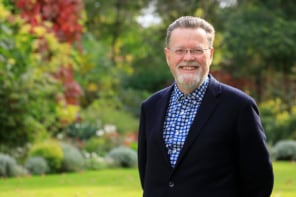
Physicists who migrate receive up to 17% more citations than colleagues who stay at home, an analysis of the careers of more than 26,000 physics researchers has revealed. Moving abroad boosts your citation record because it diversifies your research interests and collaborations, the study claims, which in turn leads to research with a higher scientific impact.
The study has been carried out by Alexander Petersen, a complex-systems physicist at the University of California, Merced in the US, who analysed data on papers published in American Physical Society (APS) journals between 1980 and 2009. He identified 26,170 researchers who had published 10 or more research articles in APS publications, and who met additional career longevity and productivity criteria.
Using information indicating an author’s geographical location, Petersen was able to compare the citation records of “mobile” researchers — focused on a 10-year period centred around each mobility event – with those of “non-mobile” researchers. Moving abroad has a significant positive effect on citation impact, Petersen found, and increases the diversity of a scientist’s research topics, co-authors and geographical collaborations.
In particular, he discovered that articles published by mobile researchers in the five years after they migrate receive 9%–17% more citations than papers published by non-mobile researchers. This adds up to around 100 additional citations, Petersen claims.
Let’s move
Published in the Journal of the Royal Society Interface, the study also finds that physicists move around a lot in their careers, with two-fifths of those in the study having migrated at least once. Another interesting observation is that 10% of physicists end all former international collaborations following a move abroad, while 34% of those who emigrate go to a country with which they have had no previous collaboration.
Peterson told Physics World that he analysed the effect of mobility during three non-overlapping time periods to see the impact of new channels for knowledge exchange, such as the internet and video-calling technologies such as Skype. “Surprisingly, the virtual channels do not appear to have substituted the value of physical mobility, as the impact of physical mobility has persisted over time,” he says.
The results of this research show that researchers of all tiers can reap the benefits of mobility.
Alexander Petersen
Petersen also looked at the movement of researchers who had won a Nobel prize in either physics, chemistry, physiology and medicine, or economics. He found that almost a quarter (23%) were “foreign-born”, having received the prize for work done in a country different than their birth country. “When you look at the sources and sinks of these migrant Nobelists, most of their trajectories steered towards the US, UK, Germany and France — likely due to the high levels of funding for basic R&D in these countries,” he says.
According to Peterson, moving abroad makes it easier to exchange not only scientific information but also the “organizational” knowledge that is needed to do research effectively efficiently. “This is particularly true for the exchange of ‘tacit knowledge’ that isn’t so easily written down or codified,” he says.

Is the end in sight for US Nobel prize dominance?
However, Peterson warns that the impact of mobility extends not just to elite scientists and Nobel-prize-winners, but to physicists of all productivity levels, which could have implications for policy makers. “While most high-skilled immigration policy is oriented around attracting and retaining elite scientists,” he says, “the results of this research show that researchers of all tiers can reap the benefits of mobility.”



